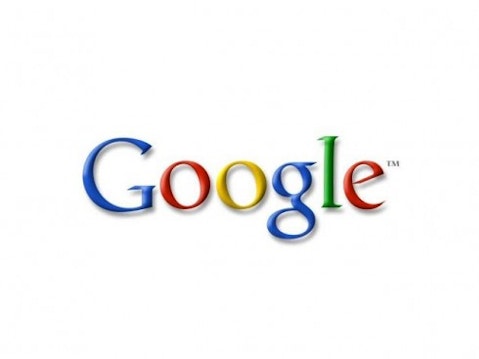Shares of semiconductor company Himax Technologies, Inc. (ADR) (NASDAQ:HIMX) have surpassed all my expectations this year with the stock appreciating more than 200% so far. Much of this rise can be attributed to the company’s rumored relationship with the Google Inc (NASDAQ:GOOG) Glass project.
However, Himax Technologies, Inc. (ADR) (NASDAQ:HIMX)’s recent announcement that Google Inc (NASDAQ:GOOG) has agreed to finance its display business, which focuses on the production of liquid crystal on silicon chips (LCOS), was the seal of approval on the duo’s relationship. Ever since this announcement was made on July 22, Himax shares have soared a whopping 45% as of this writing.
Google steps in
Google Inc (NASDAQ:GOOG) has agreed to acquire a 6.3% stake in Himax Technologies, Inc. (ADR) (NASDAQ:HIMX)’s display unit, and the search engine behemoth has an option to increase its stake to 14.8% in the next year. Himax will use the financing received from Google to ramp up production of LCOS, a technology expected to be used in Google Glass. Now, this is indeed impressive, and investors who had scooped up shares of Himax earlier this year would be sitting on fat gains.

We’ve seen that this euphoria doesn’t usually end well (Apple Inc. (NASDAQ:AAPL) and its suppliers for instance). Himax Technologies, Inc. (ADR) (NASDAQ:HIMX) investors might be having a great time so far, and even my CAPS rating has been pumped up by Himax’s rise, but I think now is a good time to stop and re-evaluate the company.
Look beyond the Glass
Let’s begin with the most basic valuation metric — the P/E ratio. Himax Technologies, Inc. (ADR) (NASDAQ:HIMX)’s trailing P/E ratio is around 24 times, which might not seem much to you as you might think that it is a fast-growing company. Well, it will be a key supplier for Google Inc (NASDAQ:GOOG) Glass and as such, the valuation might seem justified. On a forward basis, the P/E metric comes down to 12 times, half of what it is currently.
This means that analysts are expecting solid earnings growth from Himax Technologies, Inc. (ADR) (NASDAQ:HIMX) going forward, the basis of which is most probably the euphoria around Google Inc (NASDAQ:GOOG) Glass. If you move back to February, when I’d covered the stock for the first time this year, it was trading at a trailing P/E ratio of 9.6. So, it’s clear that the market has bid up the stock far too high and is counting on the success of the Glass to drive its earnings in the future.
Analysts (according to Yahoo! Finance) are expecting 25% growth in revenue in the next fiscal year, comprehensively more than the current fiscal year’s expected growth rate of 15%. Moreover, earnings are expected to grow an impressive 44% next year, and a commendable rate of 28% a year for the next five years.
Is Google Glass the correct catalyst?
But, the reason for such optimism is a product, although groundbreaking, is yet to prove its mettle in the market. In May, Business Insider listed a number of reasons why Glass might fail in its current state. There are concerns regarding a range of issues from battery life to privacy, and now, cheaper competition also seems to be coming into the play.
Although one can expect Google Inc (NASDAQ:GOOG) to gradually iron out the flaws in the Glass and make it even better, but pumping up Himax Technologies, Inc. (ADR) (NASDAQ:HIMX) for a product which is still to hit the mass market is a mistake. To put things in perspective, Himax’s revenue improved 16% in fiscal 2012 and current year’s projected growth rate is also the same. However, the stock is richly valued at present and that too because of a product whose credibility is yet to be established.
Ignoring the real business
In the midst of this euphoria, it seems like everyone is missing the point: Himax Technologies, Inc. (ADR) (NASDAQ:HIMX) is a great business as its display drivers are present inside monitors, notebooks, TVs, tablets, smartphones, cameras, and many other electronic devices. Himax is also counting on smartphone growth in China, where consumers are moving to smartphones, and this is leading to an increased demand for Himax’s small and medium-sized drivers.
Moreover, sales of its non-driver products, such as CMOS image sensors, touch panel controllers, power management ICs, LED drivers, etc. is also well-positioned to grow. Considering the wide range of products where the company’s products are used, it would undoubtedly be a good buy, but in my opinion, its valuation at present is too high.
The company will need to deliver above-average earnings growth in the future; otherwise its shares might fall closer to reality. The amount of revenue Himax Technologies, Inc. (ADR) (NASDAQ:HIMX) might expect to generate from Google Inc (NASDAQ:GOOG) Glass is still unknown and we’ll have to wait to see the potential impact. Himax is slated to release its next earnings report early next month, and the outlook would certainly give us a few pointers of what to expect going forward.
The bottom line
I’m not advising you to sell Himax Technologies, Inc. (ADR) (NASDAQ:HIMX) at this point as its core business is still strong, and if Google Inc (NASDAQ:GOOG) Glass turns out as lucrative as expected for it then there’s no looking back. However, considering the state of Google Glass now and the optimism around it, Himax shares might fall if the company can’t satisfy the lofty expectations of Wall Street.
Harsh Chauhan has no position in any stocks mentioned. The Motley Fool recommends Google. The Motley Fool owns shares of Google.
The article The Euphoria Around This Google Glass Play Is Overdone originally appeared on Fool.com.
Copyright © 1995 – 2013 The Motley Fool, LLC. All rights reserved. The Motley Fool has a disclosure policy.





